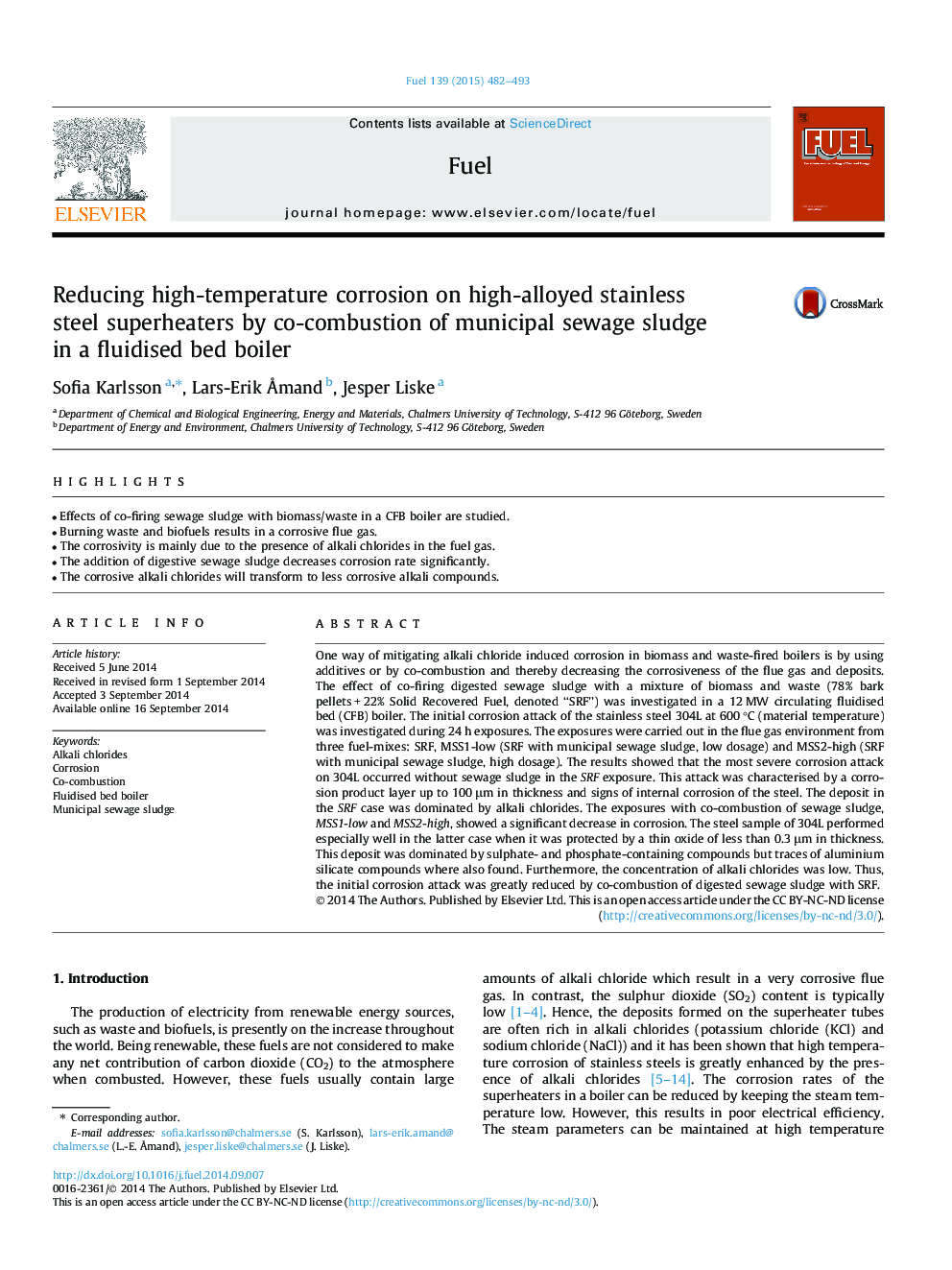| کد مقاله | کد نشریه | سال انتشار | مقاله انگلیسی | نسخه تمام متن |
|---|---|---|---|---|
| 6636548 | 461134 | 2015 | 12 صفحه PDF | دانلود رایگان |
عنوان انگلیسی مقاله ISI
Reducing high-temperature corrosion on high-alloyed stainless steel superheaters by co-combustion of municipal sewage sludge in a fluidised bed boiler
ترجمه فارسی عنوان
کاهش خوردگی درجه حرارت بالا بر روی بخاری فرآورده های فولاد ضد زنگ با احتراق از لجن فاضلاب شهری در یک دیگ بخار مایع
دانلود مقاله + سفارش ترجمه
دانلود مقاله ISI انگلیسی
رایگان برای ایرانیان
کلمات کلیدی
کلرید قلیایی، خوردگی، احتراق همگانی، دیگ بخار مایع لجن فاضلاب شهری،
موضوعات مرتبط
مهندسی و علوم پایه
مهندسی شیمی
مهندسی شیمی (عمومی)
چکیده انگلیسی
One way of mitigating alkali chloride induced corrosion in biomass and waste-fired boilers is by using additives or by co-combustion and thereby decreasing the corrosiveness of the flue gas and deposits. The effect of co-firing digested sewage sludge with a mixture of biomass and waste (78% bark pellets + 22% Solid Recovered Fuel, denoted “SRF”) was investigated in a 12 MW circulating fluidised bed (CFB) boiler. The initial corrosion attack of the stainless steel 304L at 600 °C (material temperature) was investigated during 24 h exposures. The exposures were carried out in the flue gas environment from three fuel-mixes: SRF, MSS1-low (SRF with municipal sewage sludge, low dosage) and MSS2-high (SRF with municipal sewage sludge, high dosage). The results showed that the most severe corrosion attack on 304L occurred without sewage sludge in the SRF exposure. This attack was characterised by a corrosion product layer up to 100 μm in thickness and signs of internal corrosion of the steel. The deposit in the SRF case was dominated by alkali chlorides. The exposures with co-combustion of sewage sludge, MSS1-low and MSS2-high, showed a significant decrease in corrosion. The steel sample of 304L performed especially well in the latter case when it was protected by a thin oxide of less than 0.3 μm in thickness. This deposit was dominated by sulphate- and phosphate-containing compounds but traces of aluminium silicate compounds where also found. Furthermore, the concentration of alkali chlorides was low. Thus, the initial corrosion attack was greatly reduced by co-combustion of digested sewage sludge with SRF.
ناشر
Database: Elsevier - ScienceDirect (ساینس دایرکت)
Journal: Fuel - Volume 139, 1 January 2015, Pages 482-493
Journal: Fuel - Volume 139, 1 January 2015, Pages 482-493
نویسندگان
Sofia Karlsson, Lars-Erik Ã
mand, Jesper Liske,
